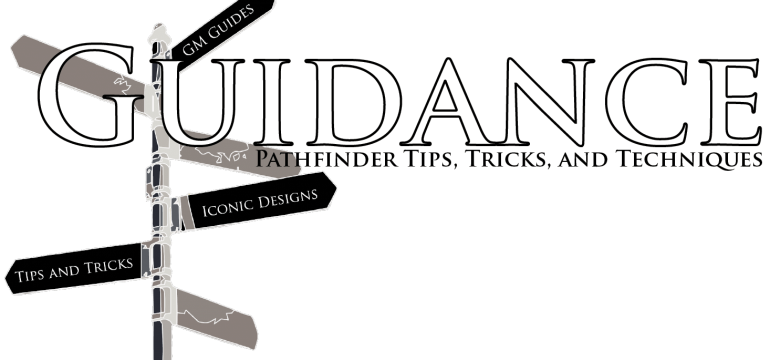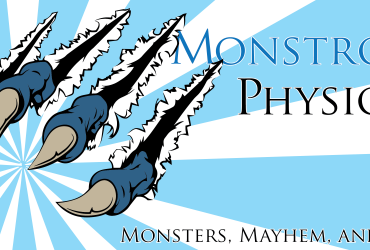Hey, everyone! I’m Alexander Augunas, the Everyman Gamer, and today I’m going to let you in on the dirtiest tactic in my toolbox. The art … of winging it. Before I started the original Everyman Gaming blog (and subsequently transferred it to the Know Direction Network), I was NOT what you would call a “prepared GM.” In fact, even now I really have to push myself to take any amount of time preparing anything that isn’t an OP scenario. Those are quick and easy for me to prep. Things like my Strange Aeons game and my home game, however, are MUCH more time consuming. And of course, it doesn’t help that I learned to GM by playing under a GM whose greatest strength was winging it. As a result, its a skill I’ve always had, and one that I am always tempted to fall back on.
Nowadays, my professionalism makes me wand to prep more—how else could I have written Yuletide Terror for Everyman Gaming LLC? But every now and then I need to fall back into those old skills, and this Saturday was one of those times. And I mean, hey, it wasn’t my fault I didn’t have time to prep Strange Aeons! Sure, I was off on Spring Break from my Master’s Classes, but I still worked full-time, wrote products, put together a bundle sale and a video for a Kickstarter I’m doing soon, celebrated my brother’s birthday with him by watching Thor: Ragnarok…, the list goes on and on! And so I just kind of didn’t have time to put Strange Aeons together this week. But cancelling was also not an option for me—we plan these games MONTHS in advance, and I didn’t want to drop it. So I leaned back into my old hat-of-tricks. Winging It.
Step 1: Take Inventory
If you’re going to be a professional “Winging-It Man” like I am, the first thing you need to do is take inventory on what you have. For me, this meant knowing what I already had prepared / decided on, and knowing what I’m good at and what I’m not good at. This looked a little bit like this:
- Last session, the PCs finished the main story arc of Strange Aeons book 3, and had reached Level 10.
- Because my players are really good at researching, they actually finished Parts 2 and 3 of Strange Aeons before Part 1. Basically, Parts 1 and 2 happen at the same time, one in the Material Plane and one in the Dimension of Dreams. So even though they had finished all of the Dimension of Dreams content, the part in the Material Plane was NOT done, and this is sort of an issue because in Part 1 the PCs are sailing somewhere. So they literally had weeks of time to pass, and I had roughly 1/3 of Part 1 left prepared. Part 1 assumes the PCs are about 7th or 8th level, however, so the PCs would wipe the floor with most of the stuff that was left. This would NOT help me “wing it,” since my goal was to create a fun game without making me run too much of Book 4 blind.
- While I had told my players last time that we would probably end up skipping the rest of Book 1, the players hadn’t received much loot in Book 3 because most of what they had done doesn’t happen in the Material Plane. Precious little loot could be brought over with them; the PCs were dramatically below recommended Wealth by Level, and I knew it.
With all this in mind, the easiest course of action seemed to be:
- Make the players finish Book 3. If they asked, tell them that I had changed my mind because they were poor. (Who was going to argue with money?!)
- While they were playing Book 3, I would work ahead and get some information together to run Book 4 when they reached it.
Huzzah! Now, on to the REAL “work.”
Step 2: Adjusting the Content
So, I knew everything I had ready for my players was too weak for them, so I pulled open my NPC Codex and Villain Codex and searched for NPCs that matched the general classes of all the NPCs that the players would meet, upgrading them as appropriate. I also threw in some extra low-level NPCs where necessary, partially to increase the challenge but also to give them more treasure for beating the increased threats. I also DRAMATICALLY improved the tactics of the NPCs wherever possible.
Here’s some examples of the sort of choices I made:
- The PCs have to deal with a cult of Hanspur, the drowned god, as one of the random encounters. They fight the cult on their boat, which is REALLY small. The cultists are kind of low level, but lucky for me there are a set of CR 7 and a CR 9 stat blocks in the NPC codex for water-themed druids. They were the PERFECT level range, and they had tons of loot, which made them serve my purpose well. I rebuilt the encounter to have four of the CR 7 druids and one of the CR 9 druids.
- Originally, I was going to have two CR 9 druids, but then I found out that the giant squid was a CR 9 creature. Now, throwing a giant squid into a river encounter is weird, but since I was dealing with a cabal of druids, it would work if I claimed that the squid was a druid using wildshape. I used the giant squid stat block instead of the druid stat block save its mental scores, but when the giant squid died I had it “return to its true form” and gave the PCs treasure as if they had beaten two CR 9 druids instead of a CR 9 druid and a giant squid.
- This resulted in roughly a CR 13 or 14 encounter, which was TOUGH for my party of five 10th level characters, but VERY lucrative. They enjoyed the difficulty of the fight and the spoils of war (they walked away with six headbands of inspired wisdom).
Step 3: Let the Players Write the Story
One thing I learned from James when he read Dead Suns for us is this: “If left to their own devices, the players will solve their own problems, but they’ll take WAY more time doing it.” And if I’m being honest, part of the “winging-it” strategy was to get the players to use as much of their time as possible doing things that advanced their story, but that minimized my lack of preparation.
Here are some examples of the tricks I used to get the players to drive the story.
- When the players met an eccentric mayor of a riverside town who had information for them, I absolutely let them roleplay with him for as long as they wanted. (Hint: a bit of emphasis on my part got the players roleplaying with this mayor for ten to fifteen minutes. I even got my players engaged with the NPC because he was crazy enjoy to offer to PAY THE PCs 10,000 GP to sit and listen to him speak to them. You can literally get your players to do most anything for an encounter’s worth of treasure!)
- At one point, the party meets a rather vicious law enforcement agent who ultimately accuses the PCs of harboring a fugitive from the law. (She’s not wrong, technically.) I had roleplayed her up twice—once when they first met her, and once now when she appeared again. I gave the players a choice: fight her, or run from her in a chase scene that I ran on the fly using the Skill Challenge Handbook, by Everyman Gaming LLC. They chose the skill challenge, which was GREAT. It helped me keep a high-energy atmosphere that, honestly, was more engaging and more time-consuming then a combat encounter would have been. Excellent!
- When the party wizard fumbled a teleport, I had her appear near the camp of the friendly organization of NPCs that the players were going to meet soon. I pulled the wizard player aside, Roleplayed with her one-on-one to establish where she was and why she should wait, and then I got to do almost the EXACT SAME ROLEPLAY with the rest of the PCs a few minutes later when the rest of the party caught up.
- When the players investigated a local alchemist that they had a lead on, they had literally no idea how to proceed when the alchemist shut the door in their faces after politely excusing himself. Turns out that emphasizing how breaking down the door of a well-respected merchant in the middle of a metropolis could be seen as a crime will really deter some players. (Note: Not all. Use your best judgment.) My players ended up wanting to go to a food vendor that the alchemist recommended, because SURELY the GM dropped that line as a clue…. NOPE. (Although it did give me an opportunity to provide the PCs with more information about the city and the goings-on, as well as introduce the sassiest Taldan waitress the world has ever seen.
Step 4: Don’t Be Afraid to Ask for a Minute to Prep
Sometimes your efforts aren’t going to work as you had hoped; you’ll need time to prep before you continue. When you do, ask your players for 5 minutes to read ahead, or simply call a meal break and work through the meal. Your players will understand and appreciate your honesty, which you’ll be able to twist into even more prep / winging it time!
And those are my tips and tricks for “winging it.” While I admitted that I was once a prominently “winging it” GM, with experience comes wisdom, and now I can honestly say that I prefer to use a combination of the two strategies. I like to go in with a plan, but I’m always prepared to throw that plan out of the window if the players do something I didn’t expect or go further then I expected.
I’m hoping I’ll be able to have more time to prepare for Strange Aeons next month, as I don’t think I can get away with a looser session again like I did this week. Most players understand that being the GM has more work attached to it then being the player, and they’ll usually overlook you slacking a little bit once or twice. Just be sure not to push it TOO far, or you might end up with a table of players that no longer wants to game with you. And we can’t have that, can we?
Alexander “Alex” Augunas has been playing roleplaying games since 2007, which isn’t nearly as long as 90% of his colleagues. Alexander is an active freelancer for the Pathfinder Roleplaying Game and is best known as the author of the Pact Magic Unbound series by Radiance House. Alex is the owner of Everyman Gaming, LLC and is often stylized as the Everyman Gamer in honor of Guidance’s original home. Alex also cohosts the Private Sanctuary Podcast, along with fellow blogger Anthony Li, and you can follow their exploits on Facebook in the 3.5 Private Sanctuary Group, or on Alex’s Twitter, @AlJAug.
EDIT: And yes, I totally “winged” this article. Victory!





